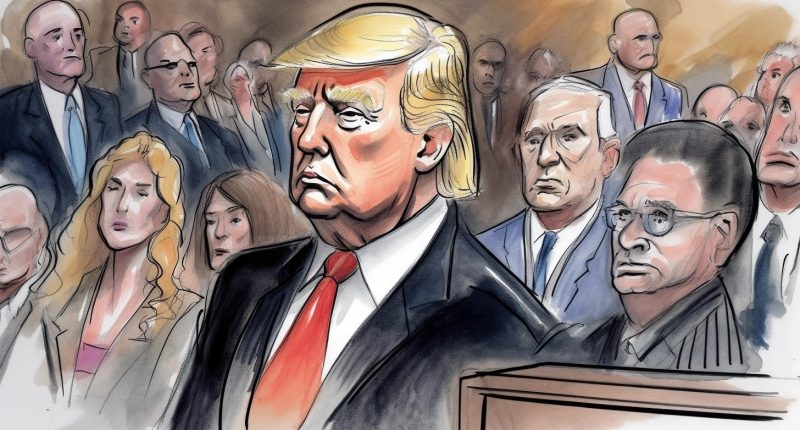
Former President Donald Trump appeared in a federal court in Miami, pleading not guilty to 37 felony counts related to his alleged mishandling of classified documents.
This marks the first time in U.S. history that a former president has been charged with a crime by the Department of Justice.
The charges against Trump include 31 counts of willful retention of national defense information, one count of conspiracy to obstruct justice, one count of withholding a document or record, one count of corruptly concealing a document or record, one count of concealing a document in a federal investigation, one count of a scheme to conceal, and one count of making false statements and representations.
Trump, who flew to Miami on his private plane, was booked and appeared at the courthouse around 1:50 p.m. ET. After the 45-minute proceeding, he was released on his own recognizance. As a condition of his release, he was barred from discussing the case with his aide Walt Nauta, who himself was charged with six counts in the indictment.
In a departure from usual protocol, no mugshot was taken, and cameras were not permitted in the courthouse. Special counsel Jack Smith, who led the investigation that resulted in the charges against Trump, was present in Miami for the proceedings.
Despite facing criminal charges, Trump will not be required to surrender his passport and will face no limitations on his domestic or international travel. He departed the courthouse just before 4 p.m. ET, later addressing supporters at his Bedminster resort in New Jersey.
In his first public remarks since the arraignment, Trump reiterated many of his previously made false claims, alleging the indictment was a form of political persecution and falsely claiming that presidents have an “absolute right” to keep any and all documents they desire.
The case is being overseen by U.S. District Judge Aileen Cannon, a Trump appointee. Last year, Cannon was involved in a legal case surrounding an FBI search at Trump’s Mar-a-Lago residence. Despite initial criticism and an eventual reversal by an appeals court, she agreed to appoint a neutral third party, or a special master, to review items seized by the FBI during its search. As the presiding judge, Cannon will have significant control over jury selection and, under the federal rules of criminal procedure, has the power to substitute her own judgment for that of the jury.
